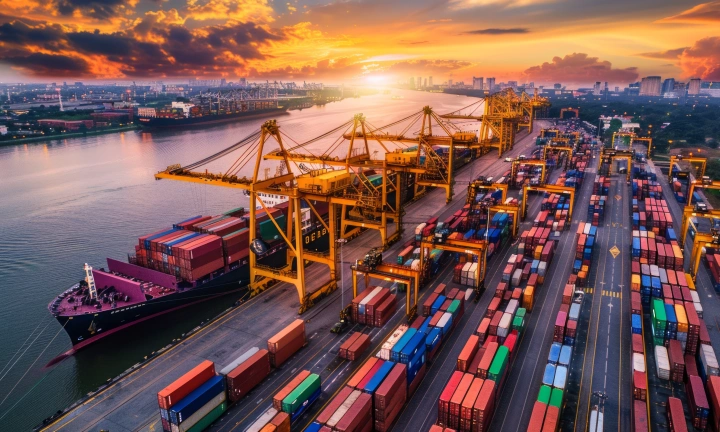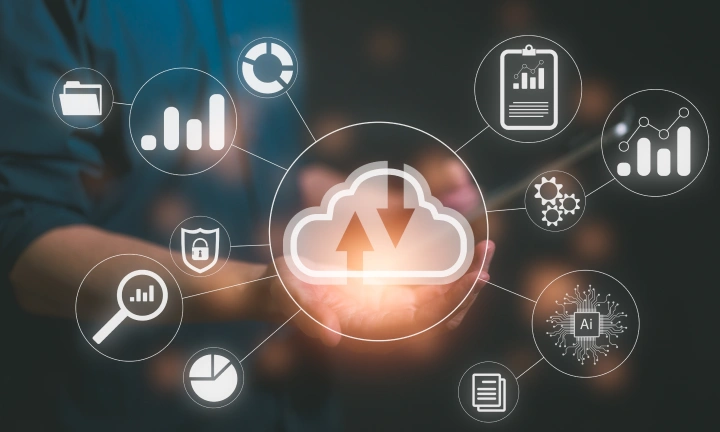The supply chain industry has been evolving seamlessly over the years. Currently, it plays a massive role in enhancing an organization’s productivity while managing its core operations efficiently in this fast-paced world.
57% of organizations believe that they can grow their businesses further by giving a competitive edge in the market because of supply chain management. However, businesses are exploring the global supply chain sector’s various opportunities, risks, and shortfalls, making it one of the highest concerns among growing organizations.
Today, supply chains are becoming the center of discussion in business board rooms, conferences, client meetings, and presidential briefing rooms. The pandemic outbreak has almost given a new shape to the world, with many businesses shutting their doors and yet others still discovering new ways to ramp up the sales they once used to have in the pre-pandemic times.
As the world begins to regain normalcy, businesses should focus on innovating and improving their manufacturing and supply chain management processes to pull more customers, even when they majorly prefer to stay back at home. So watch out for these top four trends in the supply chain industry, and you need to follow them in 2022 to boost your revenue in the new normal.
Sustainability is Key
To make supply chains sustainable, companies are considering the environmental aspects while ensuring high customer experiences and good human impact throughout the product journeys. Therefore, all the supply chain practices, from sourcing raw materials and manufacturing one’s products to storing and delivering them appropriately, are carried out sustainably without affecting the environment.
Today’s customers are increasingly becoming concerned about Mother Earth and taking active steps to build a greener planet for the generations to come. Businesses should also follow more eco-friendly practices to build a sustainable line of products that would last long.
You should also use more renewable energy sources in your manufacturing and supply chain management practices to save non-renewable energy reserves. Integrating your supply chain management processes with an efficient ERP solution like SAP would help get these tasks done faster and more accurately. The goal is to become more socially responsible and take ESG (environmental, social, and governance) initiatives in 2022 and the upcoming years.
Build a Resilient Supply Chain System
A resilient supply chain can prepare for and resist unexpected situations, risks, and disruptions and recover itself completely to regain its original position. This ensures stable business growth and continuity without hampering sales and revenue generation.
For the past few decades, resilience in the supply chain has been word of mouth for every business. However, industry leaders and experts believe that there would be continuous challenges and disruptions in the supply chains, including labor shortages, cargo ships, demand and supply imbalances, etc.
However, businesses should create a more resilient and threat-proof manufacturing and supply chain plan to ensure steady growth even when facing these challenges. In short, organizations should adopt more intelligent ERP solutions, like SAP SCM (Supply Chain Management) software, to build a more resilient and sustainable supply chain management system.
To save time and increase the efficiency of your supply chains and ERP systems, take the help of a professional SAP Consulting Company, which will help businesses develop, plan, and implement customized SAP systems as per your specific needs and business objectives. The team will also enable you to integrate all your existing tools and IT infrastructure with the flexible interfaces of SAP solutions.
The supply chain processes of any organization should be able to recover and regain their original states to ensure continuous growth and revenue generation.
Advanced Automation and Real-Time Analytics
Incorporating advanced technologies and tools in the manufacturing and supply chain industry is not new. However, companies need to adapt to changes and implement more modern technologies to give a competitive edge to their rivals.
Industry 4.0 or the Fourth Industrial Revolution encourages rapid technological advancements and changes in societal patterns. With intelligent automation tools and higher interconnectivity, the supply chain sector has a promising future since today, information can be transmitted across the world in a fraction of a second.
With the rise of Artificial Intelligence (AI) and Machine Learning (ML), it’s easier to gather real-time social media data to track customer behaviors, devices they are using, products they are interested in, and so on. In addition, it helps to identify different vehicles and IoT (Internet of Things) volumes to make important decisions and strategies to manage manufacturing and supply chain processes better.
SAP’s Supply Chain Management solution enables suppliers, distributors, manufacturers, and business partners to manage various operations, including planning and execution, network building, efficient collaboration and coordination, and so on. The solution also enhances customer satisfaction and allows businesses to save their valuable resources like time, money, and manpower by automating their supply chain processes.
Build More Customer-Centric Supply Chain Models
Customer-centricity is the key driving force that helps businesses balance their supply and demand chains. The challenging part is to cope with the ever-changing customer needs and to keep up with the growing expectations of modern-day buyers.
Organizations are focusing on developing more ethical and sustainable business practices to serve their customers’ ever-growing demands and preferences. Because today’s consumers prefer buying from a brand that has a voice and gives importance to customer interactions, it would require training and upskilling the employees and sales representatives to create a productive cross-functional work culture.
Conclusion
To conclude, you need an efficient supply chain management system like SAP to keep up with the latest trends and fulfill your customers’ growing demands. According to Forbes, 65% of the supply chain, logistics, and transportation executives believe that various processes in these sectors are undergoing constant changes. So, unless you have a powerful ERP system and supply chain management solution, it would be difficult to stay ahead of the competition. To ensure seamless integration of your existing business applications and ERP systems with those of SAP, you need experienced SAP consultants who will take care of your unique needs and offer the most suitable solution accordingly.





